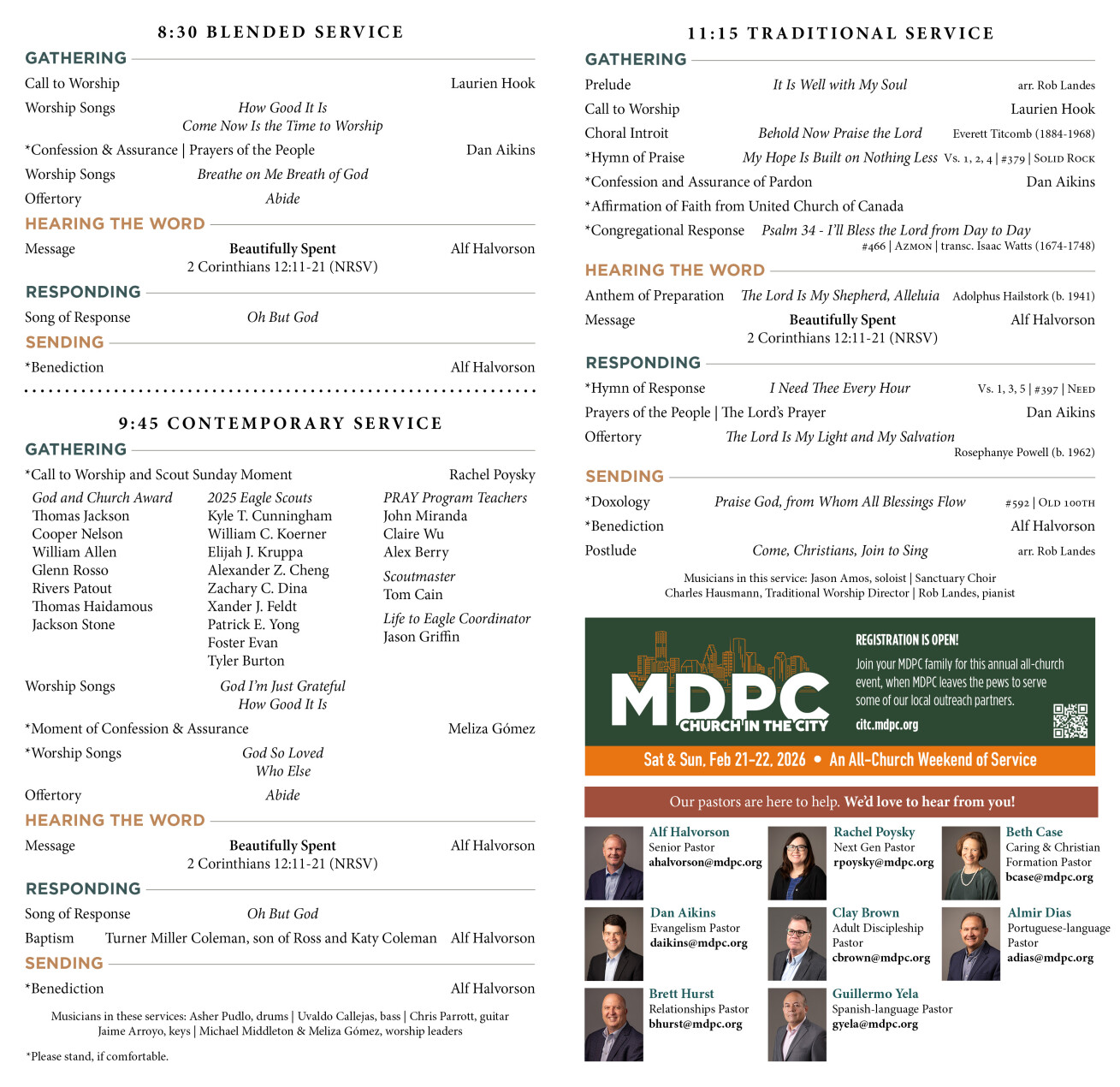Sermon Notes
Download Notes (.docx)
2 Corinthians 12:11-21 (NRSV) • Notes by Rev. Dr. Alf Halvorson
This is second to last in our series on Paul’s second letter to the church in Corinth. He is winding down his argument against the “super-apostles” who are trying to take the church in a different direction than Paul (and Christ) have been leading them up to this point. Amazingly, Paul must defend not being paid by the church. The rivals are suggesting that it is because Paul doesn’t love them or honor them. Paul turns the tables and says basically, “Ideally, parents shouldn’t have to take from their children; they give to their children.” Paul, in the end, sees himself as a parent to these spiritual children. He loves them and is willing to sacrifice for them so they can be built up in the Lord.
- No parents are perfect. But, as you grew up, did you know that your parents loved you and had regularly sacrificed for you? If so, how? And if not, in what ways did they “miss the mark” or profoundly let you down?
- Read 2 Cor. 12:11-12, focusing first on verses 11-13. Why does Paul think he has been a good apostle for them? Why do you think he didn’t burden them with having to financially support him, while he let other congregations offer that kind of support (and he was a tent maker, too, who provided much of his own support)?
- Focus on verses 14-18, especially on verses 14-15, where Paul is exceptionally transparent and vulnerable. What is he trying to convey? Have you ever felt like Paul when you tried to offer your love? That you were rebuffed or rejected, or your love was not returned with the same fervor as it was offered? How did you feel? What did you do?
- In verses 19-21, Paul says he and his team are there to build up not tear down, but building up required that they confront sin in the lives of those under their care. Do you feel comfortable holding others accountable? Have you allowed others to speak into your life about possible blind spots or sins that could shipwreck you? How much trust must be in a relationship for that kind of candor to work positively? What would it look like “to speak the truth in love” to someone you have accountability over and have it work out for the best for the person? How might you avoid the relationship exploding beyond recognition?
- Are any of the sins from verses 20-21 sins that you need to confess and find forgiveness for through Christ? Read 1 John 1:8-9 and follow through on repentance and God’s restoration.

